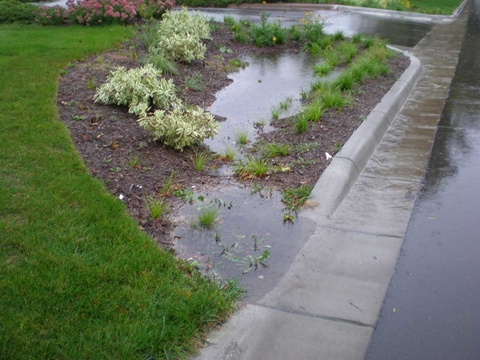Why is percolation important?
A main benefit to implementing urban forests is allowing them to serve as rain gardens providing increased soil percolation. Whereas pavement typically found in urban settings takes up very little stormwaters leading to large amounts of runoff, rain gardens are designed to soak up large amounts of water and decrease runoff. Concrete pavement can only percolate on average about 300ml of water per hour, leaving most water to runoff. In cities like Miami this frequently leaves more stormwater runoff than the sewer systems can pump out to sea, quickly leading to inundation.
What are the benefits of percolation?
Creating urban forests and rain gardens with native vegetation to create healthy soil ecosystems capable of accepting large amounts of water can allow around a liter of rainwater per hour to percolate. Studies show that rain gardens 12 inches deep can hold up to 620 gallons of water during a storm and can process this water within several days of the storm. Strategically placing rain gardens along paths of stormwater runoff could dramatically increase the amount of water percolated into the ground and help prevent sewer systems from becoming overwhelmed and inundated during storms.
